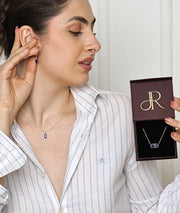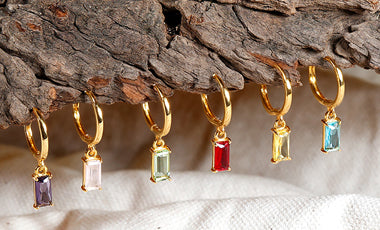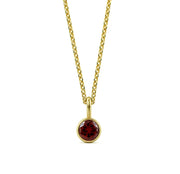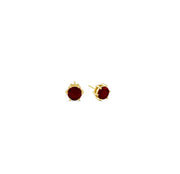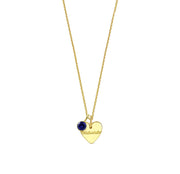Getting your ears pierced can be exciting, but it also comes with responsibility. Whether it is your first piercing or your tenth, infections can occur if proper aftercare is neglected. How can you tell if your earring is infected? In this guide, we will cover the common signs, causes, treatments, and everything else you need to know to keep your piercings healthy.
What’s Normal & What’s Not?
There is no need to panic—some redness, swelling, and mild tenderness immediately after a piercing are completely normal as your body begins to heal. However, if these symptoms persist or worsen, it could be a warning sign that something is wrong.
1. Redness & Swelling That Doesn’t Go Away
It’s okay if your ear is a little red right after the piercing, but if it stays that way for more than a few days or starts getting worse, it could be a sign of infection.
2. Warmth or Burning Sensation
An infected piercing often feels warm to the touch. This heat is your body’s way of fighting off bacteria but it’s a clear sign that something's not right.
3. Yellow or Green Discharge
A small amount of clear fluid (lymph) is normal during healing. But yellow, green, or thick pus usually points to infection. If it smells bad, that’s another red flag.
4. Pain or Throbbing
A slight ache is common, but if you feel sharp pain or throbbing, especially after a week or more, you might be dealing with an infection.
5. A Lump Behind the Ear or Around the Piercing
Sometimes, infected piercings develop small lumps filled with fluid. These are called granulomas and are your body’s way of reacting to irritation or bacteria.
Read On: How Long Does It Take for Earring Holes to Close?
Why Do Earring Infections Happen?

While infections can happen to anyone, certain habits can make them more likely. If you’re wondering what might be causing the trouble, here are some common culprits:
Touching With Dirty Hands
Your hands carry a lot of germs. If you keep touching your earrings without washing them first, bacteria can easily transfer.
Sleeping on Fresh Piercings
Constant pressure on a new piercing can cause irritation and open the door to infection.
Cheap or Irritating Jewelry
Some metals, like nickel, can irritate the skin or trigger allergic reactions especially in sensitive ears.
Skipping Aftercare
Not cleaning your piercing regularly or using harsh chemicals (like alcohol or hydrogen peroxide) can delay healing and increase the risk of infection.
How to Treat an Infected Earring at Home

If you catch the infection early, you can usually treat it right at home. Just follow these simple steps to soothe and heal your ear safely:
1. Clean the Area Gently
Use a saline solution (mix 1/4 tsp salt in 1 cup warm water) and gently clean the front and back of your piercing twice a day using a clean cotton pad.
2. Don’t Remove the Earring (Yet)
It’s tempting to take it out, but removing the earring can cause the hole to close, trapping the infection inside. Keep it in unless a doctor advises otherwise.
3. Apply a Warm Compress
A warm compress helps increase blood flow and reduce pain. Use a clean washcloth soaked in warm (not hot) water and place it over the area for 5–10 minutes.
4. Avoid Harsh Products
Stay away from alcohol, hydrogen peroxide, or ointments like Neosporin unless recommended by a doctor. These can irritate the skin and slow healing.
Know More: Broken But Not Gone: How to Fix a Broken Necklace
When to See a Doctor
If home remedies aren’t working, it’s time to seek help. See a doctor if:
-
The redness and swelling spreads beyond the piercing site
-
You develop a fever or feel generally unwell
-
The pain becomes unbearable
-
There’s continuous pus or bleeding
Early medical help can prevent serious infections or complications.
How to Prevent Future Earring Infections
An ounce of prevention is worth a pound of cure, right? Here are some quick tips:
-
Always wash your hands before touching your earrings
-
Clean new piercings daily with saline for at least 6–8 weeks
-
Choose hypoallergenic metals like surgical steel, titanium, or 14k+ gold
-
Avoid changing earrings too soon
-
Don’t share earrings with others
Final Thoughts
Infections can occur, and they do not necessarily mean you did anything wrong. The important thing is to identify them early, treat them carefully, and know when to seek professional help. Always keep your piercings clean, avoid touching them unnecessarily, and choose high-quality earrings that are gentle on your skin.

